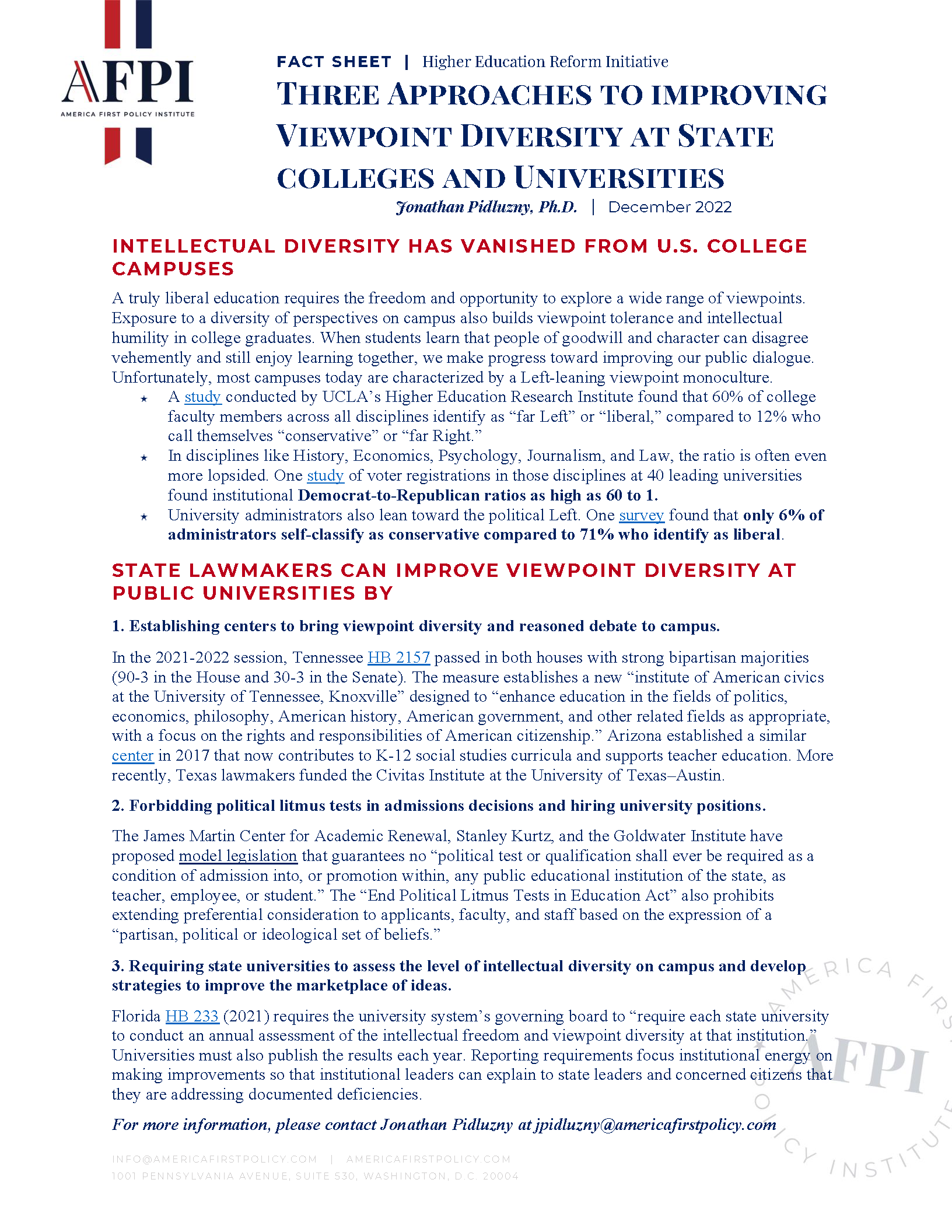Three Approaches to improving Viewpoint Diversity at State colleges and Universities
intellectual diversity has vanished from U.S. college campuses
A truly liberal education requires the freedom and opportunity to explore a wide range of viewpoints. Exposure to a diversity of perspectives on campus also builds viewpoint tolerance and intellectual humility in college graduates. When students learn that people of goodwill and character can disagree vehemently and still enjoy learning together, we make progress toward improving our public dialogue. Unfortunately, most campuses today are characterized by a Left-leaning viewpoint monoculture.
- A study conducted by UCLA’s Higher Education Research Institute found that 60% of college faculty members across all disciplines identify as “far Left” or “liberal,” compared to 12% who call themselves “conservative” or “far Right.”
- In disciplines like History, Economics, Psychology, Journalism, and Law, the ratio is often even more lopsided. One study of voter registrations in those disciplines at 40 leading universities found institutional Democrat-to-Republican ratios as high as 60 to 1.
- University administrators also lean toward the political Left. One survey found that only 6% of administrators self-classify as conservative compared to 71% who identify as liberal.
state lawmakers can improve viewpoint diversity at public universities by
1. Establishing centers to bring viewpoint diversity and reasoned debate to campus.
In the 2021-2022 session, Tennessee HB 2157 passed in both houses with strong bipartisan majorities (90-3 in the House and 30-3 in the Senate). The measure establishes a new “institute of American civics at the University of Tennessee, Knoxville” designed to “enhance education in the fields of politics, economics, philosophy, American history, American government, and other related fields as appropriate, with a focus on the rights and responsibilities of American citizenship.” Arizona established a similar center in 2017 that now contributes to K-12 social studies curricula and supports teacher education. More recently, Texas lawmakers funded the Civitas Institute at the University of Texas–Austin.
2. Forbidding political litmus tests in admissions decisions and hiring university positions.
The James Martin Center for Academic Renewal, Stanley Kurtz, and the Goldwater Institute have proposed model legislation that guarantees no “political test or qualification shall ever be required as a condition of admission into, or promotion within, any public educational institution of the state, as teacher, employee, or student.” The “End Political Litmus Tests in Education Act” also prohibits extending preferential consideration to applicants, faculty, and staff based on the expression of a “partisan, political or ideological set of beliefs.”
3. Requiring state universities to assess the level of intellectual diversity on campus and develop strategies to improve the marketplace of ideas.
Florida HB 233 (2021) requires the university system’s governing board to “require each state university to conduct an annual assessment of the intellectual freedom and viewpoint diversity at that institution.” Universities must also publish the results each year. Reporting requirements focus institutional energy on making improvements so that institutional leaders can explain to state leaders and concerned citizens that they are addressing documented deficiencies.
For more information, please contact Jonathan Pidluzny at [email protected]
